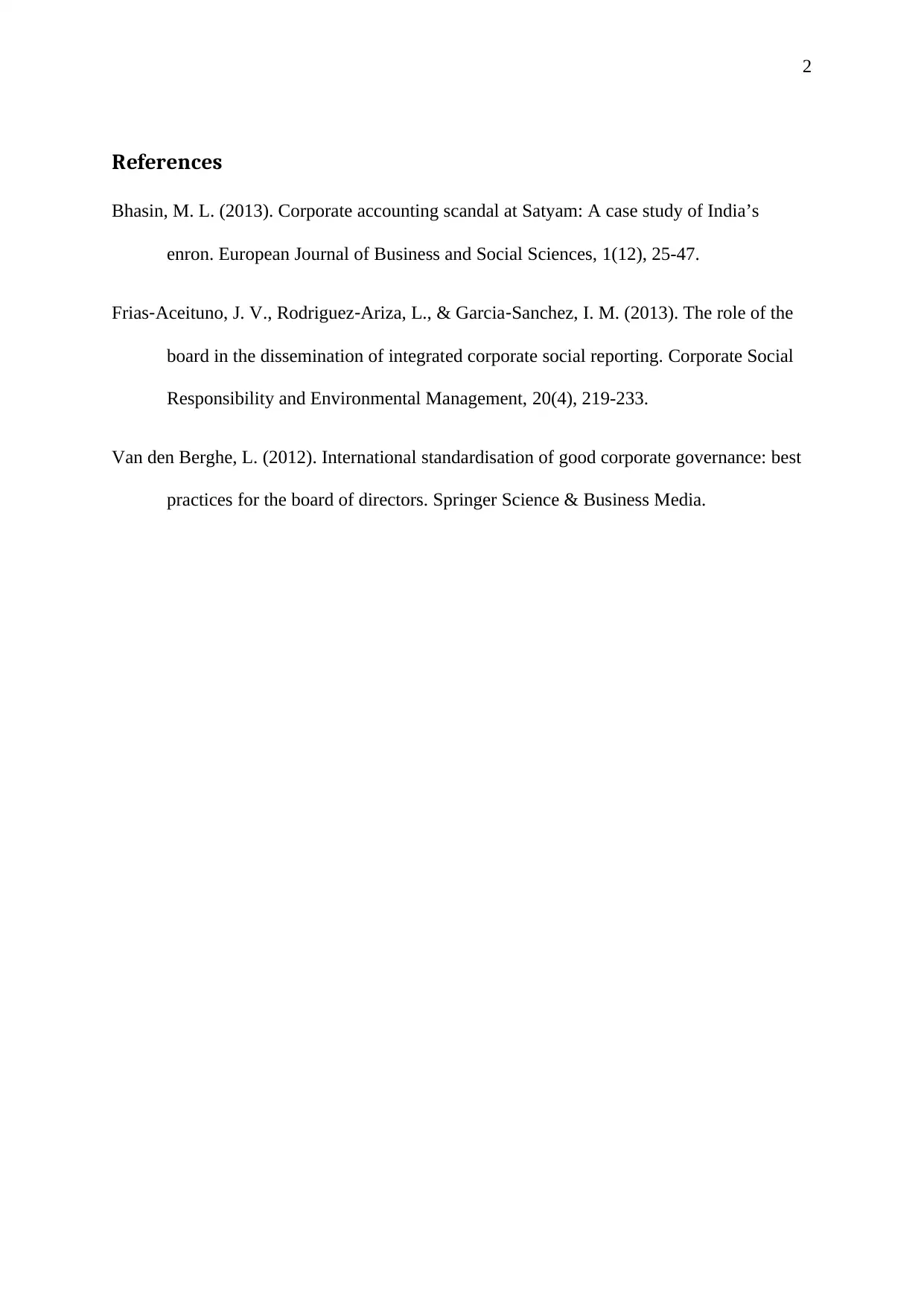Corporate Governance: Role of Board of Directors and CSR in Business
VerifiedAdded on 2023/04/21
|3
|442
|324
Report
AI Summary
This report delves into the critical role of the board of directors in corporate governance, emphasizing their responsibilities in making business decisions and ensuring ethical practices. It highlights the importance of establishing a robust corporate social responsibility (CSR) structure to enhance accountability and transparency. The report discusses the negative implications of unethical practices, using examples like Enron, WorldCom, Satyam, and the Volkswagen Emission scandal to illustrate the impact on stakeholders such as customers, shareholders, government, and the environment. The primary focus is on the board's duty to act ethically and maintain a balance between stakeholder interests. References to academic sources such as Van den Berghe (2012), Bhasin (2013), and Frias-Aceituno et al. (2013) are included to support the arguments presented.
1 out of 3










![[object Object]](/_next/static/media/star-bottom.7253800d.svg)